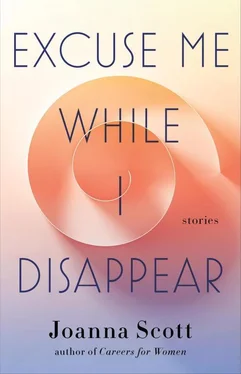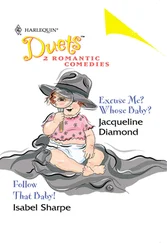“Sweetheart, you can’t just assume Sal knows my show.”
“Sure, I know it. I listen to you every day on the way to work!”
“Then maybe you noticed I’m one of those guys with a motor mouth. And I always like to give a boost to local talent. You can count on me to recommend your services on air, Sal.”
So Henry McCarter was Harry the Whiz, the locally famous talk show host on Sal’s favorite station. Sal might as well have discovered that he’d been dining with a king!
dinner.
Dinner? No way, Harry.
Dinner, Dan, he stays for dinner. He’s there telling us about his wife and kids, and how much his daughter loves soft serve, he’s telling us he gets his daughter soft serve when she loses in
As he drove away, Sal reflected on the evening. The McCarters had treated him as an honored guest. They had wined and dined him as they would have a true dignitary. They had expressed sincere interest in his life. When the wife had made a comment about upcoming state legislation, hinting that she was antiunion, Henry had come to the defense of repairmen, insisting that they were just as important as doctors. He’d gone so far as to compare electricians to neurosurgeons. “I can’t imagine all you guys need to know in order to work with live wires.”
By the time Sal arrived at his solitary house in Valentine, a small town in the adjacent county, he was nothing less than joyful—a feeling that lasted all through the night, infusing his dreams, and into the morning, as he headed out to his first job and tuned the van’s radio to 102.2.
volleyball. It’s five o’clock, then six, then seven, and he’s still there in the house, Dan. He’s still talking. It’s like, it’s dark outside, and he’s never going to leave.
You’re telling me he just came to fix the light, and he’s still
Sal listened for a few minutes. Driving along the country road that would take him to the highway and into the suburbs, he passed a herd of deer standing in a meadow. A hawk circled overhead. A series of dump trucks sped downhill in the opposite direction, heading toward the construction site of a new development. Sal found his aching molar with the tip of his tongue. He couldn’t tell whether it was his glasses or the windshield that became foggy. He raised his hand, his plump fingers hovering close to the dashboard. He kept his left hand lightly balanced on the steering wheel. His mind wandered, though not far. He reviewed the events of the previous evening and tried to come up with a new interpretation, but his thoughts kept circling unproductively around arbitrary memories from the previous day: the dripping garden hose, the clatter of the wrench, the taste of the soft serve. He glanced down at the radio.
Chugging uphill, his van let out a loud backfire, startling the deer, which looked up from the grass. Sal did not flinch and instead thought about how everyone has the freedom to make choices. No matter how unimportant you are, if you are a voting citizen in a democracy you
there, and it’s dark, and you’re thinking, This is friggin’ weird, Harry.
The whole dinner, Dan. He stays for the salad, the steak, the potato casserole, he can’t stop eating. My daughter, she’s a real jokester, she goes out and gets soft serve and brings it back in a bucket. The guy loves soft serve.
So he eats it.
He eats it. This guy, he really
can choose between doing your job or neglecting it. You can choose between being a friend or a bully. You can choose between going forward or turning around and going home. When you’re young you can choose to enlist in the marines or to become an electrician. If you’re an electrician, you can join the International Brotherhood of Electrical Workers, though you don’t have to if you don’t want to, you
can pack it away, and he hasn’t been working out in the gym, I doubt he’s ever set foot in a gym.
Are you saying he’s fat, Harry?
That’s what I’m telling you, Dan, I mean, you
don’t have to do anything you don’t want to, not even exist another day. Existence is not an irrefutable obligation. You can veer into the path of an oncoming dump truck, or you can stay in your own lane, the same way that you can let electrons keep flowing through a wire loop or stop them merely by flipping a breaker, just like you
got to realize, this guy isn’t merely big, Dan, he —
can choose between stopping the thoughts looping through your brain and, with your finger an inch away from the buttons for the radio, stopping the voices reverberating across the airwaves,
I’m way ahead of you, Harry, I know what you’re going to say!
Then go ahead and say it for me, Dan, tell our listeners what I was
though maybe not all at once, maybe turning down the volume gradually just so you know you’re the one in control, you’re the one doing the choosing by reducing the volume until all you can hear, before you hear nothing at all, is a pathetic whine that fades out as you reach the final rise.
Alight drizzle was falling the day I pulled up to the small warehouse on Monument Road. A faded sign above the garage door indicated that the building had once housed a repair business for outboard motors. The wide tilt door was raised, leaving the interior open to the damp air. I parked my car, as I’d been instructed to do over the phone, in the lot of the old Mother of Sorrows Church across the street. My footsteps on the gravel seemed to go unnoticed, and I couldn’t find a bell to ring. I had no choice but to enter of my own accord, announcing my presence as I crossed the wide threshold.
“Hello there? Mr. Farley?”
Paper sheets tinted a creamy blue were clipped to clotheslines crisscrossing the space. They hung at eye level, creating deep, latticed curtains that blocked my view of the rest of the room. They looked as thin as butterfly wings yet were firm enough to make a crackling sound as I pushed them aside.
“Hello? Anybody home?”
“Here I am!”
I headed toward the rear of the room in the direction of the voice. Parting the last row of flags, I emerged into the open space of a kitchen area, where a small, freckled man with frothy white eyebrows and a collar of a beard stood beside the stove, stirring the contents of a cauldron with a huge metal spoon.
“Mr. Farley?”
He kept stirring and stirring. I watched, transfixed. The fragrance reminded me of Elmer’s paste. It must have been a thick concoction, for he was expending considerable effort just to bring the spoon around in a full circle.
“Terence Farley?”
He lifted the spoon, shaking off the drips of a gluey substance before setting it aside. He tipped the entire contents from the pot into an adjacent trough, then picked up a framed screen from a stack and dipped it into the hot stew, extracting a pulp that was a shade bluer than the rectangles. He tipped the screen to coat it, then left it to drain on a mesh counter and repeated the process with another screen.
“My record,” he finally announced, “is one thousand eight hundred and two sheets in a single day—but that was with the help of three assistants. It has been a long while since I’ve been able to afford assistants. I’ve discovered that the older the cloth, the faster it drains. You can imagine my delight when I learned that the Silicon Chip factory was updating its shop coats. I offered to take the old coats for free, saving the company an expensive landfill penalty.” Without looking up, he said, “You have no idea what I’m talking about, do you?”
I decided to play along. “You’re making soup with shop coats?”
Читать дальше












